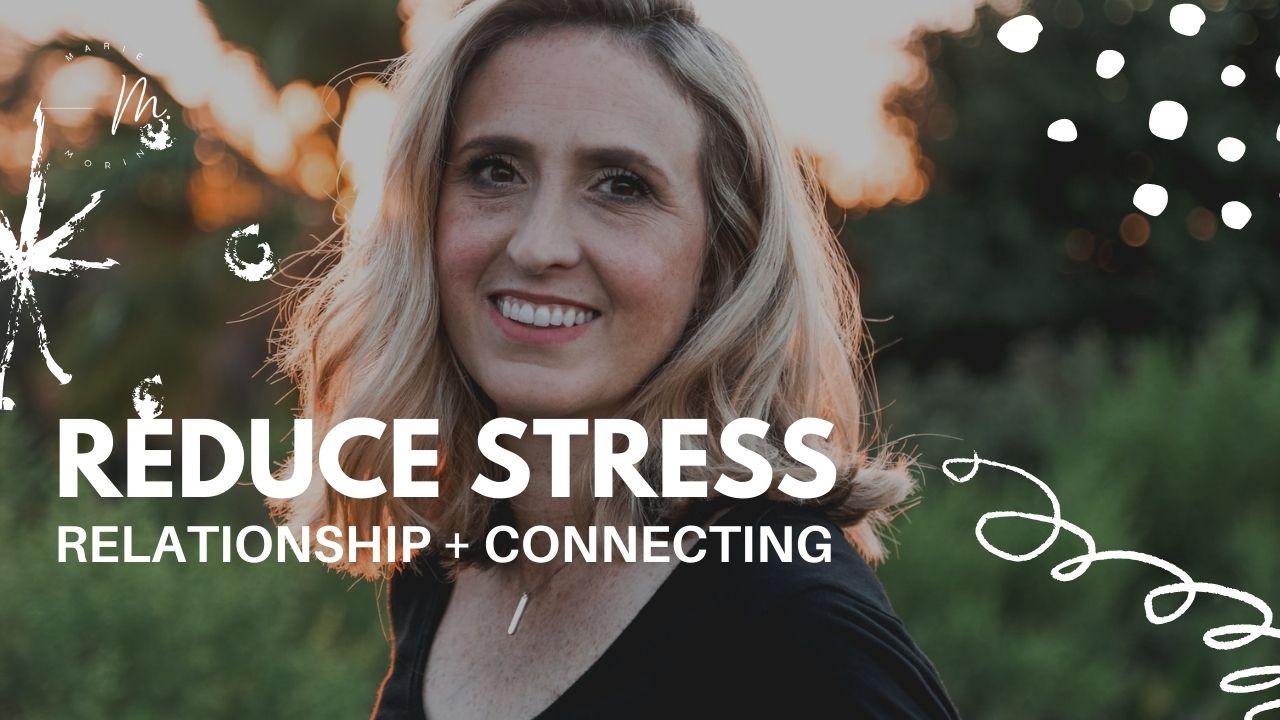The most powerful force on earth is surprisingly human connection. Being in relationships and connecting genuinely is key to leading a happier and healthier life. This article will explore some of the findings of the Harvard Study of Adult Development. How relationships reduce stress with connecting and three tips to get connected.
Why Do We Need Relationships and How Does it Help With Stress?
The Pandemic has come with much hardship and a great deal of stress. Certainly, covid 19 and the onslaught of individuals getting ill, and loved ones hurting over the loss of friends and family members have been extremely challenging. There is no doubt that the uncertainty of transmission, illnesses, wearing masks, curtailing our lifestyle, and not seeing the light at the end of this long tunnel is stress-inducing.
Stress can be about worrying about one or more concerns. Stress can result from too much to do and being overwhelmed. Pressure can also come out of losing a loved one or the general climate of uncertainty we all experience. We also get stressed during life transitions such as weddings, divorces, or losing a job. Chronic illnesses can be draining in addition to emotional struggles and can be very stressful.
The effects of stress can be challenging on the body and the mind. Managing stress requires a mindful and intentional approach. If you don’t manage stress, it will control you. Outside of daily routines such as exercise, eating well, sleeping well, and self-care, an essential practice is to be involved in relationships. Robert Waldinger, the current director of the Harvard Study on Human Development “Loneliness Kills.”
“Social relationships, or the relative lack thereof, constitute a major risk factor for health—rivaling the effect of well-established health risk factors such as cigarette smoking, blood pressure, blood lipids, obesity, and physical activity.”
—House, Landis, and Umberson; Science 1988 [1]
When we are isolated, we tend to see the world just through our lens. We lose the benefit of learning, listening, and giving to others. We also lose what would be given to us if we are in a relationship. It is easy to isolate today with the fear of getting sick. We can still go for outdoor walks and keep safety guidelines. We can still participate in phone calls, virtual calls, and dates doing outdoor activities. Connecting with others is a protector against stressors because we are not making this life journey alone. We have someone in the boat with us.
Connection is the Antidote to Stress
The Harvard study of adult development has been ongoing for 8o years. Over the life of the study, the focus has shifted from studying physiology to studying the original population’s spouses and their children. The exciting part of the study is that compared to everything they learned, the key indicator in happiness in older years is directly related to connections in one’s fifties. Now known as the Grant and Glueck study, it provides fascinating data on the importance of human connection as a protective factor. In short, friends help us live longer and better.
Connections can vary between casual relationships and significant ones like spouses, good friends, and family members. The researchers found that overall, the happiest people made solid, substantial relationships and connections, in other words, links where people share and have safe passage into being genuine. The study’s contribution is a confirmation and predictor of better health outcomes as we age if we stay connected.
Another meta-analysis on mortality supported mainly by Brigham Young confirmed another interesting finding. People who isolate and are lonely have worse health outcomes. The analysis demonstrates that the process of being with people softens the stress response. One theory suggests that connection brings modeling of better behaviors, a way to gain self-esteem and find purpose in life.
Other studies looked at a hierarchy of importance in predicting well-being. At the top of the list are having people we can count on, then having a sense of community followed by regular social interactions.
Depok Chopra
“Giving connects two people, the giver and the receiver, and this connection gives birth to a new sense of belonging.”
Relationships! Relationships! Relationships!
What we can learn from these studies is only helpful if we take the research and run with it. Relationships can be enormously rewarding and sometimes challenging. They can be tough to navigate and difficult at times to continue. But people are resourceful and resilient. We can step out of what we normally do and try new things. If we have found ourselves retreating and isolating, it may be time to consider something different.
Three Tips to Get Connected for Less Stress and Better Health
- Resist the temptation to isolate when things are tough. Make eye contact with people you run into daily. Make small talk. What is the worst that can happen?
- Push yourself to reach out. If you have been out of the loop for a while, start by making a phone call. Talk to the people in your travels, the gas station, the grocery store, and doctors’ offices. Smile with your eyes if you have a mask on. Get out of your routine and contact a friend or neighbor. Be the one who reaches out to others; take a chance. Write a text and invite people over to be outside. You engage in the practice of connecting and encouraging others.
- Don’t wait for circumstances to be perfect. Do your best to challenge yourself. In time, if you practice reaching out even with difficult family members it will get easier. Try other stress reducing practices if you’re having anxiety.
Remember, many of us are also struggling with loneliness and perhaps hopelessness. When we are stressed, we might focus on mostly thinking about ourselves. The truth is we are not alone. We are more united with others than we think. If we make the first move to connect with others and make it a priority to remain in contact, fantastic progress in your well-being is available to you.
It may take you to come out of your comfort zone. Progress will come as you relate with others regularly. Stress will be reduced, less stress means feeling better. Considering the difficulties with the transmission of covid 19, keeping distance, and wearing masks, we know that alternatives to real meetings are virtual meetings. There are advantages to virtual meetings that allow one to see the entire face and reading facial expressions. There are ways to be responsibly safe and meet with people outdoors. Taking a walk with a friend or neighbor is a great idea.
Susan Waldenstrom, Certified Master Life Coach and Massage Therapist lives in beautiful Stillwater, Minnesota. She owns Calm Care. Susan is a fantastic resource of wisdom. Be sure to watch the entire interview. Much of this writing is gathered from an interview with Susan.
Susan’s Tips on Living a Happier and Healthier Life
If our goal is health and happiness, then our priorities need to shift. We focus on what is important to us, so we prioritize connections if we want to live longer and happier.
- Play More – Be sure to have fun. Fun is essential in bringing down time from usual stressors. Fun is also nurturing and replenishing. Fun is good for you!!
- Do My Best- You may have a million chores to do, but if it takes you away from relationships it’s not helpful. Decide to curtail overworking when you can connect with others.
- Make Relaxing a priority. Relaxation means you stop from the normal busy routine.
You may find a yoga class, meditation, journaling, a walk, or a good view relaxing. If you have trouble relaxing, consider trying a breathing exercise or gratitude journaling. Both practices can bring relaxation.
This article discussed the findings of the Harvard Study of Adult Development. Also, we discussed the relationship and less stress correlation. How relationships reduce stress with connecting and three tips to get connected.










